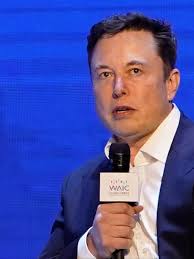
The recent disclosure by Elon Musk, CEO of Tesla and SpaceX, about his experience with his transgender child has ignited a debate on parental rights, healthcare decision-making, and the treatment of transgender youth. In a candid interview with psychologist Jordan Peterson, Musk revealed his concerns about the use of puberty blockers and the impact on his child, adding fuel to the ongoing discourse surrounding transgender healthcare and parental consent.

Musk’s revelation centered around the circumstances leading to his child, Xavier, now identifying as Vivian Jenna Wilson, undergoing medical transition procedures. His assertion that he felt “tricked” into granting permission for the use of puberty blockers for his child has reignited discussions on the complexities of parental consent, medical ethics, and the treatment of minors facing gender identity challenges.
The interview also delved into the broader societal and legislative context, referencing California’s recent legislation, Assembly Bill 1955, which allows schools to keep a child’s sexual orientation or gender identity confidential from their parents. The interplay between parental rights, healthcare privacy laws, and the treatment of minors became a focal point of the conversation, reflecting a wider societal tension on navigating sensitive healthcare decisions involving young individuals.
While Musk’s account has stirred emotions and opinions, it has also drawn attention to the broader implications of transgender healthcare practices, including the use of puberty blockers. The mention of potential irreversible long-term fertility issues in boys linked to puberty blockers, as highlighted in a preprint study by the Mayo Clinic, has amplified concerns about the long-term effects and medical considerations for transgender and gender-diverse youth.
Furthermore, Musk’s personal testimony has brought to the forefront the ethical considerations and potential vulnerabilities surrounding healthcare decisions for minors facing gender dysphoria. His candid remarks and the ensuing discussion with Peterson underscore the need for a balanced and informed dialogue on the best interests of transgender youth, the role of parental consent, and the ethical responsibilities of healthcare providers in ensuring comprehensive care and support.
The article also shines a light on the personal journey of Musk’s child, Vivian, formerly known as Xavier, who publicly announced her transgender identity in 2022. Vivian’s petition to legally change her name and disassociate from her biological father has underscored the deeply personal and complex nature of the transgender experience, adding a human dimension to the broader societal debate.
Amidst the backdrop of Musk’s comments, the article highlights the subsequent decision by Musk to relocate the headquarters of SpaceX and X to Texas following the enactment of the California legislation. His proactive response to the legislative environment reflects the broader impact of policy decisions on individuals and businesses, further emphasizing the intersection of social dynamics, corporate decisions, and legislative influence.
Ultimately, Elon Musk’s disclosure regarding his transgender child has sparked a multifaceted conversation encompassing parental rights, healthcare ethics, legislative impact, and the personal narratives of transgender individuals and their families. As the discourse continues, it underscores the importance of fostering an inclusive and informed dialogue that takes into account the complexities of transgender healthcare, parental roles, and the well-being of transgender and gender-diverse youth.



